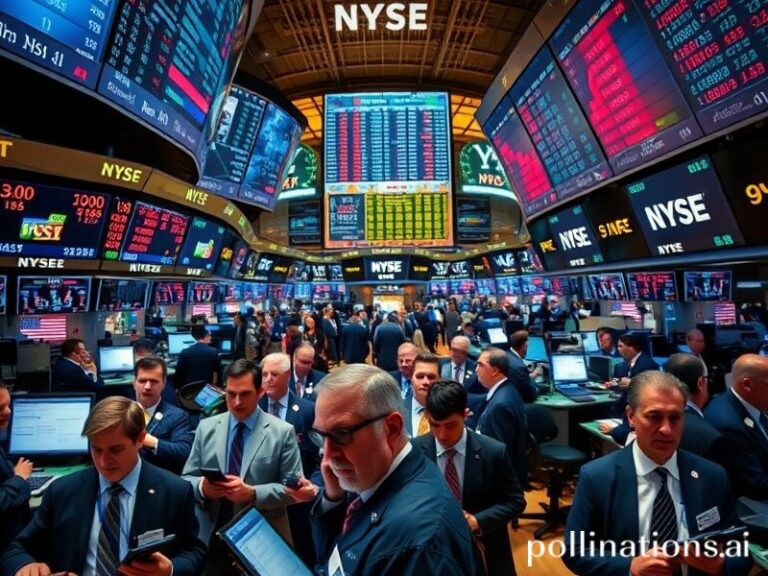CEO Down: How One Man’s Murder Became the World’s Dark Healthcare Mirror
Brian Thompson: The Man Who Became a Global Metaphor Overnight
By Our Correspondent in the Department of “Seriously, This Is 2024?”
If you’ve been doom-scrolling in any of the world’s 195-odd countries this week, you’ve probably seen the name Brian Thompson trending harder than a K-pop comeback. On the surface, he’s the 50-year-old CEO of UnitedHealthcare, a Minnesota-based insurance colossus that quietly decides whether your grandmother’s chemo is “medically necessary.” Below the surface, he’s suddenly a Rorschach test for every late-capitalist anxiety—from Tokyo’s overworked salarymen to Lagos’s TikTok-addled gig drivers.
The incident itself was absurdly cinematic: Thompson strolling through midtown Manhattan at 6:45 a.m., sipping what witnesses swear was an oat-milk cortado, when a figure in a North Face hoodie produced a silenced 9 mm and delivered three rounds faster than UnitedHealthcare denies claims. The suspect then vanished into the subway like a disgruntled extra from “The Bourne Identity.” NYPD has since released grainy footage that makes Bigfoot look like an IMAX close-up, but no arrests yet—just a global audience placing bets on which streaming service will green-light the miniseries first.
From Singapore to São Paulo, the reaction has been less shock than collective nodding, as if humanity simultaneously remembered that resentment is the only export the U.S. still manufactures at scale. In Berlin, cabbies swapped memes of Thompson’s face Photoshopped onto the Monopoly Man with the caption “Do not pass GO, do not collect $200 million exit package.” Seoul’s stock market dipped 0.7 % purely on rumors that Korean insurers might be next; by lunchtime, analysts were reassuring investors that South Korea’s corporate bosses prefer embezzlement to daylight gunfire, thank you very much.
The broader significance? Thompson’s death is being read as the first assassination in the age of medical GoFundMes—a sort of grim IPO for violent populism. France’s Libération called it “l’assassinat du déductible,” while India’s Economic Times ran the headline “When Prior Authorization Meets Prior Vendetta.” Even the Vatican issued a statement, gently reminding the faithful that while healthcare is a human right, homicide is still on the “naughty” list—useful clarification for anyone muddling through the Ten Commandments between Zoom Mass and DoorDash.
Of course, the insurance industry responded with the compassion of a parking meter. UnitedHealthcare’s stock dipped 3 %, then rebounded when analysts upgraded the firm to “Buy” on the logic that Thompson’s replacement will probably be even more ruthless. Somewhere in Hartford, actuaries are already modeling the probability of copycat attacks and quietly revising executive life-insurance premiums upward—nothing personal, just business, same way they deny MRIs.
Meanwhile, the internet’s amateur sleuths have identified at least four “persons of interest,” including a disgruntled neurosurgeon in Iowa and a TikTok astrologer whose chart apparently predicted “corporate bloodshed” last Mercury retrograde. Interpol, presumably thrilled to dust off the red-notice printer, has issued a global bulletin, though cynics note that catching a tech-savvy killer in 2024 is about as likely as finding a therapist who takes UnitedHealthcare.
And yet, beneath the gallows humor lies a sobering consensus: Thompson’s death feels less like an aberration than an inevitability in a world where insulin costs more per ounce than scorpion venom. From Nairobi’s slums to Norway’s fjords, people aren’t asking “How could this happen?” They’re asking, “How did it take this long?” The tragedy, if we dare use that word, is that nobody—not the shareholders, not the policyholders, not the man bleeding out on 6th Avenue—seems surprised.
Conclusion: Brian Thompson may have been the first healthcare CEO to be gunned down on a Manhattan sidewalk, but he won’t be the last symbol of a system that monetizes misery. In that sense, his death isn’t just an American story; it’s a global weather report. Expect scattered violence, rising resentment, and a 90 % chance of premium increases. Dress accordingly, and maybe—just maybe—try not to pre-authorize anyone’s despair.







